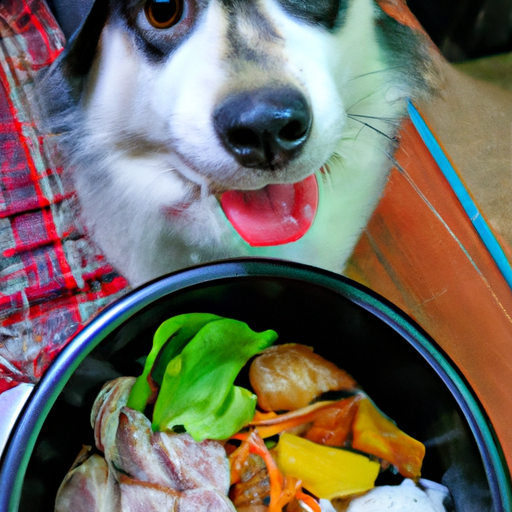As a caregiver to your furry friend, you’ve probably wondered what human foods are safe for your dog to consume. This guide is here to help you navigate the world of people food for dogs, ensuring your canine companion maintains a balanced and healthy diet.
Understanding A Dog’s Nutritional Needs
Before delving into the specifics of people food for dogs, it’s essential to understand your dog’s nutritional needs. Dogs are omnivores, which means they can eat a variety of foods, including meats, grains, fruits, and vegetables. However, some foods are more beneficial than others, and some can be harmful.
Dogs require a balanced diet, which includes:
- Proteins
- Fats
- Carbohydrates
- Vitamins
- Minerals
Safe People Foods for Dogs
Many foods in your kitchen are perfectly safe for dogs. These include:
- Lean Meats: Chicken, turkey, fish, and lean cuts of pork or beef are excellent sources of protein for dogs. Cook these meats thoroughly and remove any bones.
- Certain Fruits and Vegetables: Apples, bananas, blueberries, cucumbers, carrots, and green beans are just a few examples.
- Whole Grains: Foods like brown rice, oatmeal, and quinoa are good sources of carbohydrates and fiber.
Foods to Avoid
Just as there are safe foods, there are also foods that can be harmful to dogs. These include:
- Chocolate
- Grapes and Raisins
- Onions and Garlic
- Alcohol
- Caffeine
| Food | Reason for Avoidance |
|---|---|
| Chocolate | Contains theobromine, which is toxic to dogs |
| Grapes and Raisins | Can cause kidney failure |
| Onions and Garlic | Can lead to anemia |
| Alcohol | Can cause poisoning |
| Caffeine | Can lead to restlessness, rapid breathing, heart palpitations, muscle tremors, and seizures |
Safe Food Preparation
When preparing people food for dogs, remember to keep it simple. Avoid using seasonings, especially salt, as these can be harmful to dogs. Always ensure the food is cooked thoroughly, and remove any potential choking hazards, such as bones or seeds.
Portion Control
While it’s fine to give your dog people food, remember that these should be treats, not meal replacements. A good rule of thumb is that treats (including people food) should make up no more than 10% of your dog’s daily caloric intake.
Consulting with a Vet
Before introducing any new food into your dog’s diet, it’s always a good idea to consult with a vet. They can provide guidance based on your dog’s age, breed, size, and overall health.
The Risks of Feeding Dogs People Food
While there are many safe and healthy people foods for dogs, there are also risks involved. These include obesity, pancreatitis, and certain food allergies or intolerances.
Remember, every dog is unique. What works for one dog may not work for another. Always monitor your dog after introducing new foods and consult with a vet if you notice any negative reactions.
FAQ Section
Q1: Can I feed my dog a vegetarian or vegan diet?
While it’s technically possible, it can be challenging to meet all of a dog’s nutritional needs on a vegetarian or vegan diet. Always consult with a vet before making this decision.
Q2: Can dogs eat dairy products?
Some dogs can tolerate small amounts of dairy, while others may experience digestive upset. It’s best to give dairy in moderation and observe for any adverse reactions.
Q3: Why can’t dogs eat chocolate?
Chocolate contains a substance called theobromine, which is toxic to dogs. It can cause vomiting, diarrhea, rapid breathing, and even seizures.
Q4: Can I feed my dog raw meat?
While some pet owners advocate for a raw diet, it can carry risks, including bacterial infections and an unbalanced diet. It’s best to consult with a vet before feeding your dog raw meat.
Q5: Can dogs eat eggs?
Yes, dogs can eat eggs. They are a great source of protein, but they should always be cooked to avoid the risk of salmonella.
This guide aims to educate you, the caregiver, about people food for dogs to ensure your furry friend’s diet is balanced, nutritious, and safe. Always remember, when in doubt, consult with a vet. Your dog’s health and well-being are worth it.



